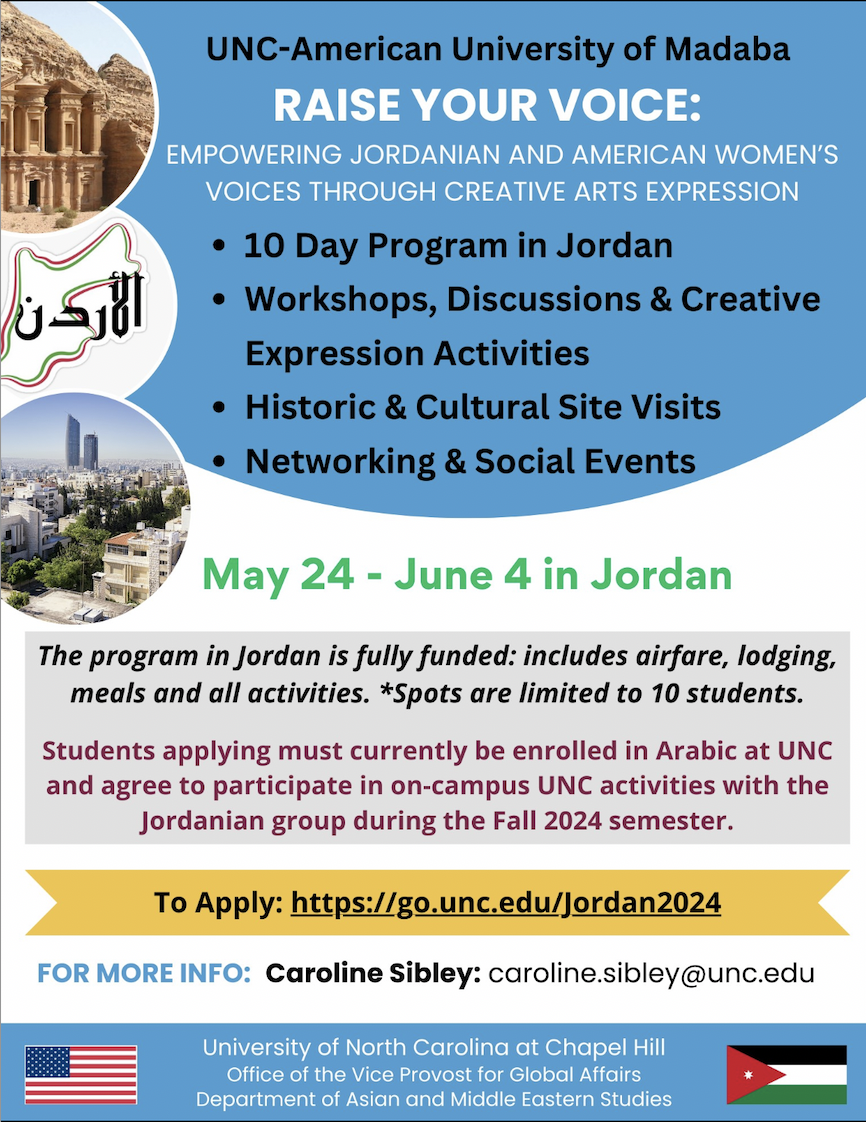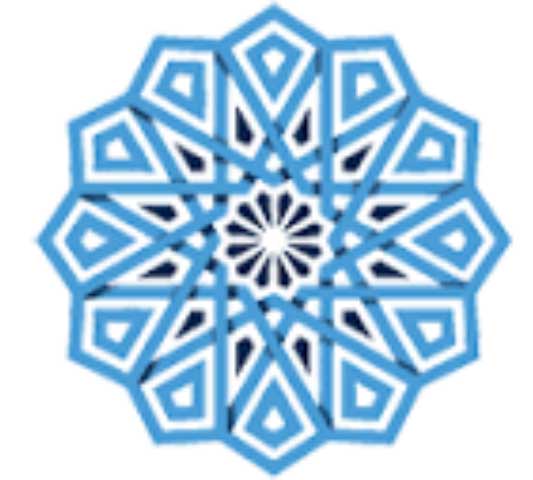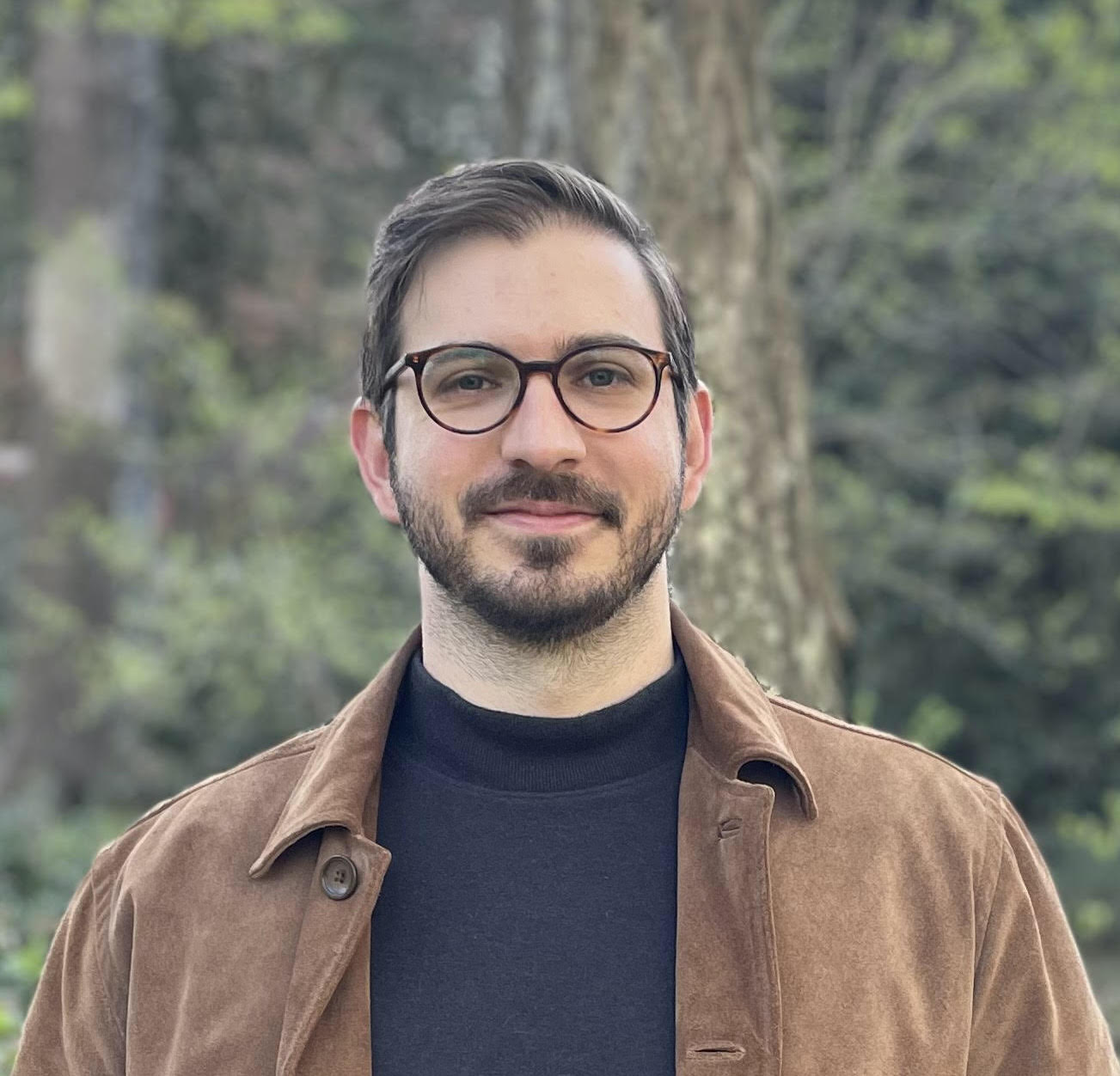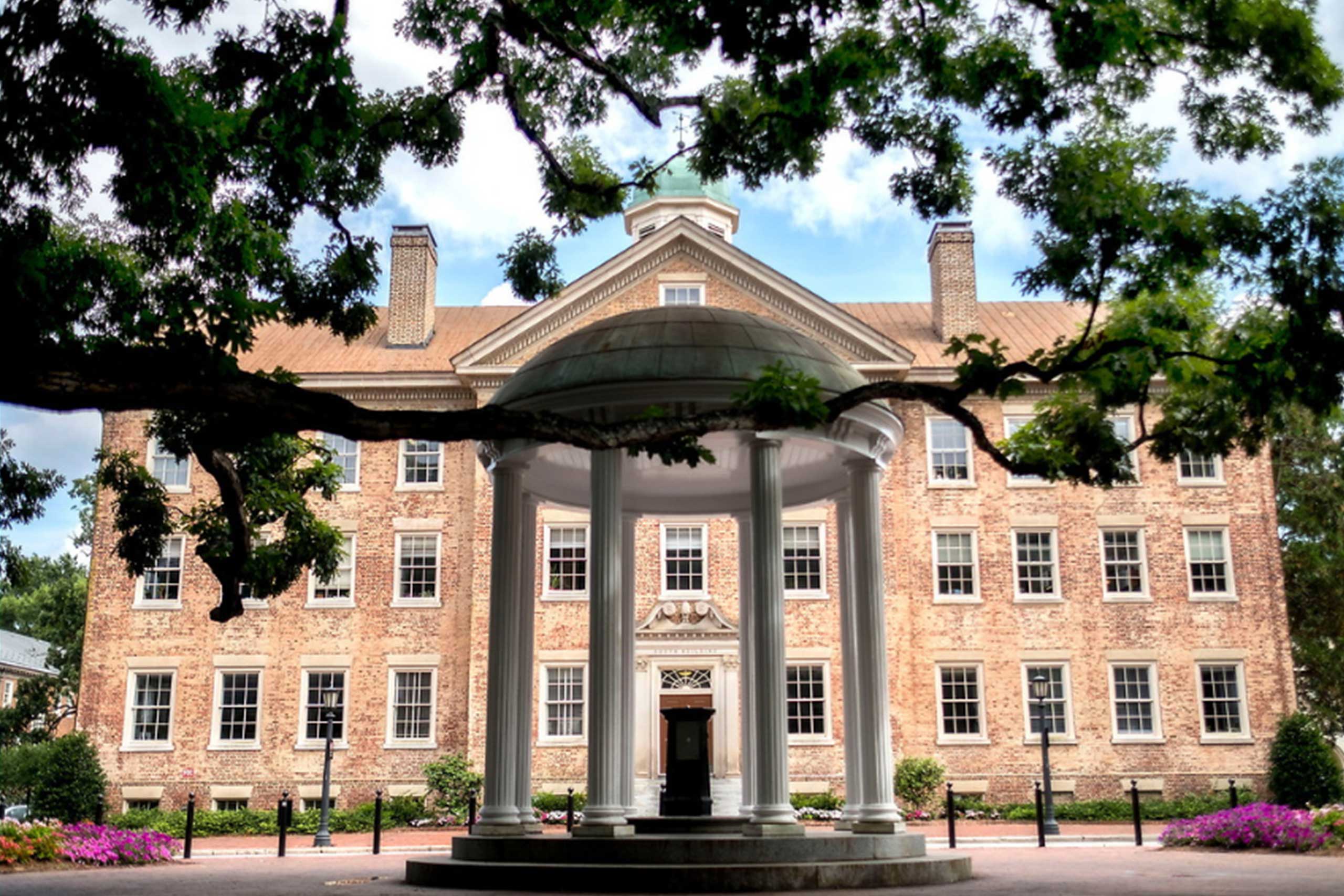
Diana Tursi at a school in Reggio Emilia, Italy.
Two University of North Carolina at Chapel Hill School of Education doctoral students have incorporated travel opportunities into their study, benefitting from funding that has helped them explore innovations and challenges in learning communities in other parts of the world.
Diana Tursi and Lucia Mock, doctoral students in the Cultural Studies and Literacies strand of the doctoral program, received grants from the UNC-Chapel Hill Center for European Studies to pursue their interests through travel and work in Italy and Lebanon.
“Traveling outside what we as researchers already know is essential to expanding our breadth of knowledge about a subject,” Tursi said. “This is particularly true when you’re researching cultural models or differences.”
Rebecca New, associate professor of early childhood education, also received a faculty travel grant from the Center to support her travel and research related to the Tursi and Mock projects. She went to Rome in July to meet with scholars at Italy’s National Research Council Institute where she learned more about current policy and local and educational responses to children of refugees.
Tursi, who is particularly interested in children’s rights in early childhood education settings, has traveled to Italy to learn more about the Reggio Emilia approach to teaching. Built on respecting childrens’ interests and ideas, the Reggio Emilia approach empowers young students by creating a hands-on environment where teachers are viewed as co-learners instead of experts. It emphasizes children’s rights and encourages children to discover things naturally.
Learning about the Reggio Emilia Approach
The approach was founded by Loris Malaguzzi and originated in a tiny, progressive Italian town shortly after the end of World War II. Devastated by the war, the town needed a way to rebuild its community and communal spirit. Reggio Emilia parents and community members began a grassroots movement that focused on the town’s youngest citizens, aiming to teach children of their value and the importance of their ideas and experiences.
Tursi, using a $2,500 grant from the Center for European Studies, visited Reggio Emilia last April. Her visit included lectures by Reggio Emilia scholars; roundtables and presentations with teachers, parents and city officials; and visits to infant/toddler centers and preschools. Tursi said her goal entering the trip was to experience and observe the many ways the schools in the city incorporate, implement and advocate for children’s rights.
“After so much research on this subject, I was a little worried that the reality wouldn’t live up to my expectations,” Tursi said. “Thankfully, however, my expectations were exceeded. Truly seeing the approach in action in the classrooms reaffirmed and solidified everything I’ve read about Reggio Emilia.”
Tursi also said that while her primary purpose was to study children’s rights, she also learned a lot about the concept of school, city and classroom identity.
“The idea of identity really resonated with me, and I’m excited to look through my notes to find what sorts of themes I find within that idea,” she said. “Thinking about rights in the classroom and community also brought up lots of ideas about the democratic process and how educators can work to truly involve and encourage the participation of all involved stakeholders.”
Tursi said seeing the approach being used was important.
“I have been researching Reggio Emilia for many years, reading books and articles and attending conferences and lectures. But actually seeing it within the Italian and community contexts added a much richer understanding to my knowledge base. By traveling to Italy, I was able to talk to and observe all the stakeholders in the Reggio Emilia system, which you don’t get by reading books and articles. This alone will be invaluable in my studies.”
Tursi: Where It All Began
Tursi developed an appreciation for good teaching at an early age — from watching her mother, who worked to integrate the Reggio Emilia principles and approach into her classroom in Winston-Salem.
“Mom has always been a child-centered teacher, and I learned a lot from watching her in her classroom,” Tursi said. “She was really inspired by the Reggio Emilia approach, and that inspired me and formed my thinking on the kind of teacher I wanted to be.”
Tursi learned more of the Reggio Emilia approach through a trip to the Wonder of Learning exhibit in Winston-Salem, her hometown, when she was 13 years old. The exhibit, which travels around the world, including a visit in Durham co-hosted by the School of Education last year, describes the background and history of the Reggio Emilia teaching approach.
After graduating from Carolina in 2005 with a bachelor’s degree in psychology, Tursi became a teacher at Our Playhouse, a Reggio Emilia-inspired school in Chapel Hill. She earned a master’s degree in education in early childhood intervention and family support from the School of Education in 2016.
“When I found Our Playhouse, which really embraced the Reggio Emilia approach, and I was given the space to research and learn more and translate it into my own classroom, that’s when I really fell in love with the techniques,” she said.
Tursi’s Next Steps
Tursi is taking to others what she has learned about the Reggio Emilia approach. She and Durham preschool teacher Beth Branciforte have been studying cities that have obtained certification as “Child Friendly Cities” through a United Nations program and plan to bring the idea to Durham and other Triangle cities.
Tursi and Branciforte have also presented at multiple area teachers’ working groups, including Triangle Reggio Emilia Educators. They presented a Reggio Emilia strand for the Advancing Skills and Knowledge Conference for child care providers held in February at East Chapel Hill High School.
Mock: Building on Her Work on Refugees

Lucia Mock (third from left) poses with staff from the Nour Center in Beirut, Lebanon.
Mock worked closely with the Nour Center, an informal education program that serves children and young people ages five to 20 from Syria and Palestine.
“I did a lot of work around identity, but the other part was helping the school set up a little more of the formalized way to track student behavior,” Mock said. “These kids have pretty intense social and emotional issues because they’re coming from Aleppo and other parts of Syria that have seen some pretty horrific stuff happening. These kids are coming in with not only the trauma of displacement, but also the trauma of war.
“The Nour Center is insistent on creating a space in school — not only physical but also in terms of feeling — that’s consistent. I helped with that because of my background as a school counselor. I was able to think about what was going to be helpful for them, and what they wanted to put in place in terms of programming.”
Before heading to Beirut, Mock said she hoped to examine people’s subjective experiences with the term “refugee” and what it means to be one.
“It’s a population that’s being talked about so much, but there’s not a lot of people exploring how these people themselves are truly experiencing the term and what it actually means to be a refugee,” she said. “I think it’s really important to connect refugee and immigrant experiences — particularly with education — and find out more about each other and the work that’s being done both locally and internationally for refugees.”
Upon returning, Mock emphasized her interest in studying identity, citing a new perspective on the term ‘refugee’ as one of her biggest takeaways from the trip.
“What was really fascinating to me was that it turned out that even the word ‘refugee’ isn’t in the vocabulary of the people that are living as displaced people in Lebanon,” she said.
“I ended up speaking mostly to young people and shied away from doing interviews with others because so many researchers come into the camp and ask questions and get stories, but then leave and never really do anything. I didn’t feel that that was appropriate to do. But the big takeaway from that was that this idea of refugee and all that term encompasses does very little to really get at the complexity and strength and resilience of this community.”
Where It All Began for Mock
After graduating with a bachelor’s degree in American history from Wheelock College in Boston in 2009 and earning a master’s degree in school counseling from Harvard in 2013, Mock moved to Lebanon, where she lived and worked as a high school counselor from 2013 to 2016. As she volunteered at a learning center that taught English to Palestinian refugees there, Mock made connections within the community and began to gain interest in further researching refugee experiences.
Mock was then attracted to Carolina’s School of Education by the Cultural Studies and Literacy doctoral program and the work being done by faculty here.
“I was drawn to the professors and the work that’s being done here at UNC-Chapel Hill, especially in terms of taking a broader look,” she said. “The cultural studies piece is really important to me. This is a really great institution, and I thought it was important to be at a place that was on the cutting edge of social justice work in education.”
Mock’s Next Steps
Mock says she plans to return to Beirut in March for 10 days to help teachers think and talk through strategies for dealing with many of the social and emotional issues they encounter when working with their students.
She worries that cuts in funding to the United Nations Relief and Works Agency will lead to the closure of UN-supported schools in Lebanon, putting more pressure on the Nour Center to take on more students.
In the meantime, she continues her dissertation research, going through her data and field notes as she explores themes of identity among the Nour Center students.
By Alex Hummel ’19
Posted from: https://global.unc.edu/news/school-of-education-doctoral-students-incorporate-travel-into-learning-about-education/






